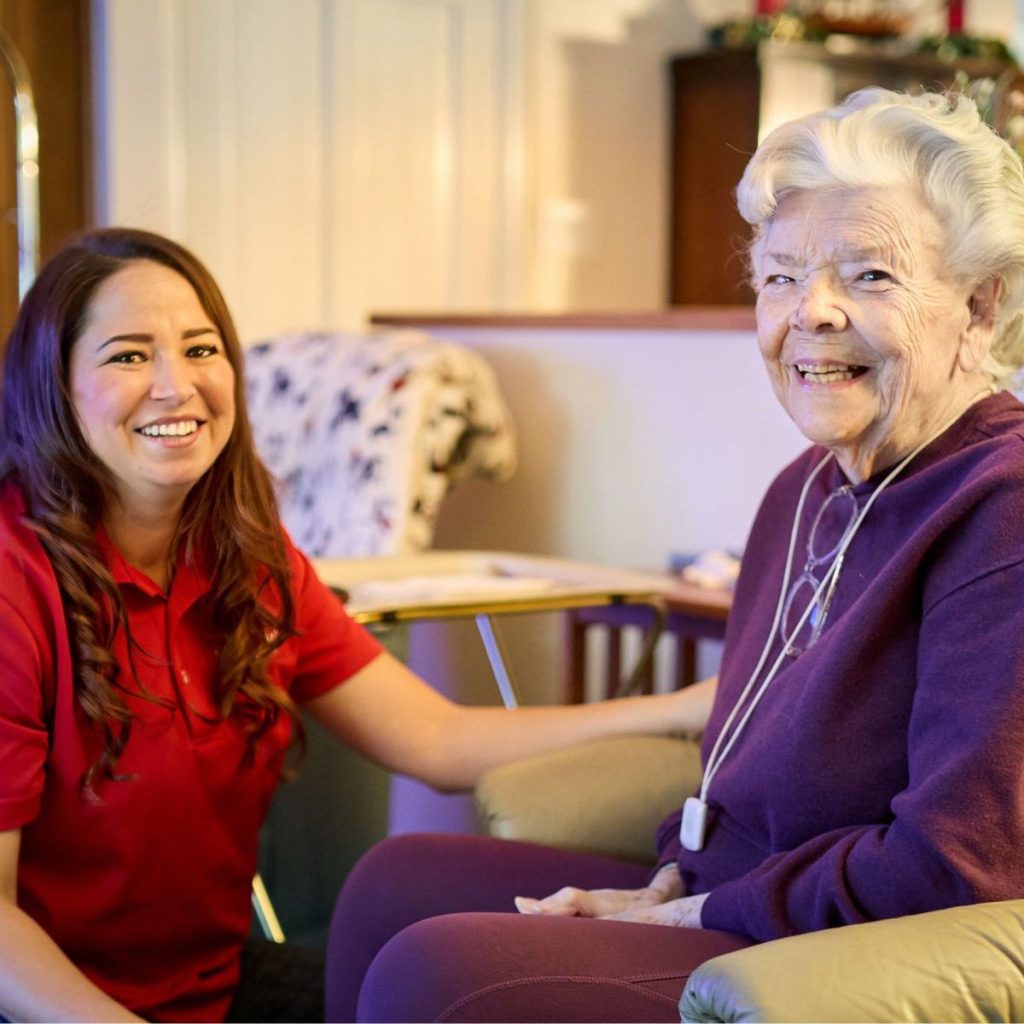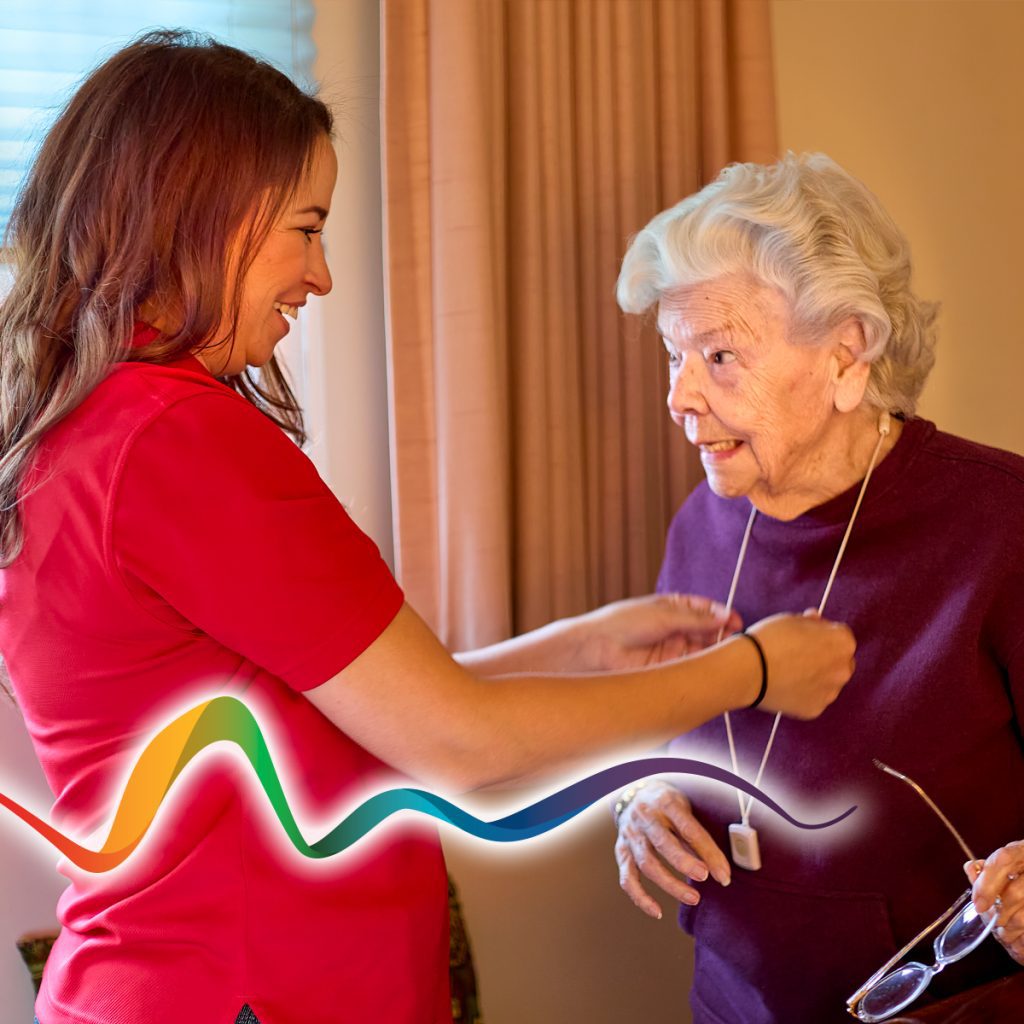Understanding the Aging Process and Dementia
Aging is a natural and inevitable part of life’s journey, bringing with it a spectrum of changes, both physical and cognitive. As you or your loved one moves through the aging process, understanding the distinction between normal aging and the complexities of dementia can help you provide tailored care to meet your unique needs.
By implementing tailored strategies, accessing valuable resources, and seeking support from dedicated caregivers and community programs, caregivers can create an environment that promotes independence, dignity, and a high quality of life for their loved ones as they navigate dementia, Alzheimer’s and other phases during the aging journey in Denver.
At Rhythms Home Care, our innovative approach to memory care is rooted in four core principles: Innovative Programming, Intuitive Communication, Compassion-Driven Approach, and Personal Connections. These principles guide us in supporting seniors with dignity and independence.
What is Normal Aging vs Dementia?
Normal Aging: As we age, it is natural for certain physical and cognitive changes to occur. These changes may include mild forgetfulness, decreased energy levels, and slower processing speeds. While these changes might affect day-to-day activities, they typically do not interfere significantly with an individual’s ability to function independently. It is crucial to approach these changes with patience and support, fostering an environment that encourages independence and maintains a positive outlook on life.
Dementia: Dementia, on the other hand, is not a part of the normal aging process. It is a progressive condition characterized by a decline in cognitive function, memory loss, and changes in behavior and emotions. Dementia can significantly impact an individual’s ability to perform daily tasks, communicate effectively, and maintain personal relationships.
Understanding these differences is essential for caregivers in Denver to provide appropriate support and resources.
How Can Caregivers Support Older Adults in Normal Aging at Home?
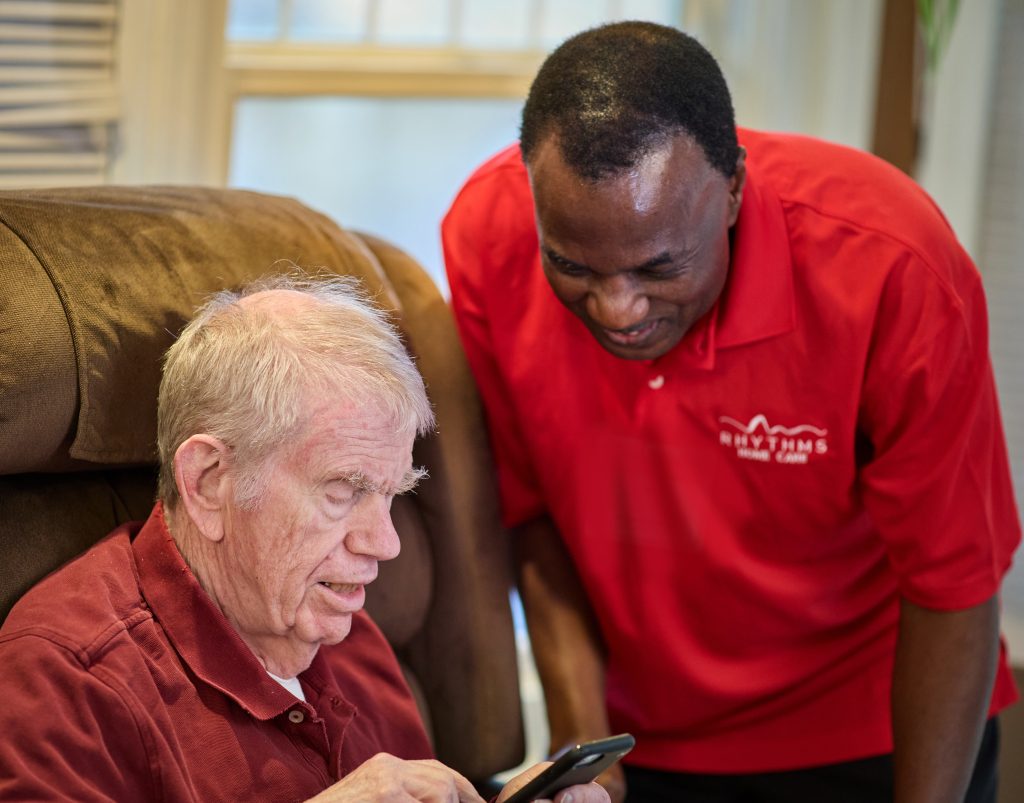
For older adults experiencing normal aging, creating a supportive and enabling environment can significantly enhance their quality of life. Here’s how our approach applies within the home setting.
Home Safety Modifications
- Install handrails along stairs and in bathrooms.
- Improve lighting to prevent falls.
- Remove clutter and secure rugs.
- Use non-slip mats and grab bars.
Encourage Physical and Mental Activities
- Promote daily walks or chair exercises.
- Engage in puzzles, reading, or hobbies.
- Introduce new learning opportunities like classes or hobby groups.
Nutritional Support
- Provide balanced meals rich in fruits, vegetables and lean proteins,
- Use meal delivery services or assist with grocery shopping.
- Encourage hydration and regular eating routines.
Social Engagement
- Facilitate regular visits with family and friends.
- Connect with community programs and senior centers.
- Use technology to stay in touch via video calls.
Caregiver Support
- Build a care team including family, friends and professional home care.
- Utilize respite care to prevent caregiver burnout.
- Access resources and training from organizations like Rhythms Home Care, which emphasizes Innovative Programming, Intuitive Communication, Compassion-Driven Support and Personal Connections.
How Do You Support Someone with Dementia at Home?
Caring for an older adult with dementia requires a comprehensive approach that prioritizes their safety, comfort, and emotional well-being. Our core principles guide this process.
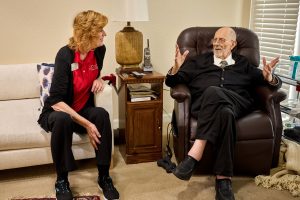
Structured Routine
- Establish consistent daily schedules.
- Use visual cues and calendars for orientation.
- Maintain familiar activities to reduce confusion.
Effective Communication
- Use simple, clear language.
- Maintain eye contact and use gentle tones.
- Practice patience and listen actively.
Memory Aids and Techniques
- Label drawers and rooms clearly.
- Use calendars, clocks and reminder notes.
- Incorporate familiar music or objects to evoke memories.
 Respite and Support
Respite and Support
- Utilize respite care for caregiver breaks.
- Join support groups to share experiences and gain insights.
- Access professional memory care services rooted in our Rhythms philosophy, emphasizing Initiative Communications and Personal Connections.
Our Rhythms Memory Care Philosophy
At Rhythms Home Care, our specially trained team members provide customized and engaging home care services tailored for your loved one living with dementia, including Alzheimer’s, Lewy Body and Parkinson.
Innovative Programming
We develop engaging, meaningful activities that stimulate cognitive function and foster independence.
- Customized routines incorporate familiar tasks and interests, helping seniors maintain a sense of purpose and familiarity.
- Activities like reminiscence therapy, music, and hobbies are tailored to individual preferences, promoting emotional well-being.
- Evidence-based therapies are integrated to encourage participation and mental engagement and every team member participates in frequent, specialized training.
Intuitive Communication
We focus on understanding and responding to each person’s unique way of expressing needs.
- Caregivers are trained to interpret non-verbal cues and subtle signals.
- We use simple, empathetic language, visual aids, and gestures to facilitate understanding.
- Maintaining eye contact and practicing patience help create a safe, trusting environment.
Check out these communication tips to help promote more enjoyable and relaxed interactions.
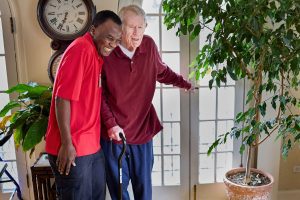
Compassion Driven Approach
Every interaction is rooted in kindness, respect and genuine concern.
- We honor personal routines, preferences, and cultural backgrounds.
- We gently redirect behaviors and provide reassurance, always respecting dignity.
- Our team receives ongoing training to deliver person-centered, empathetic care.
Personal Connections
Building meaningful relationships is central to our philosophy.
- We spend quality time engaging in conversations, hobbies, and life stories.
- Family involvement is encouraged through regular visits and virtual contact.
- Personalized care plans reflect each individual’s history and preferences, fostering belonging and trust.
Our Rhythms approach ensures that memory care is not just about managing symptoms but about enriching lives through innovative programming, intuitive communication, compassion-driven support, and the focus on personal connections.
This philosophy guides us to provide care that honors each individual’s dignity and promotes meaningful engagement for those living with dementia or Alzheimer’s.
Why Choose Rhythms Home Care for Memory Support?
Caring for seniors with dementia or normal aging requires understanding, patience, and innovative support. At Rhythms Home Care, we are dedicated to providing compassionate, tailored care rooted in our core principles.
Our approach combines cutting-edge programming with a heartfelt commitment to personalized connection and communication. We believe every person deserves dignity, respect, and the opportunity to live with purpose.
Our services support both the physical and emotional needs of seniors with memory challenges, empowering them to maintain independence and quality of life.


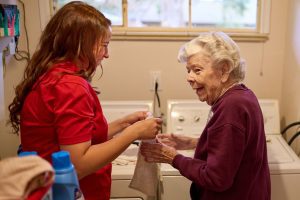 Respite and Support
Respite and Support